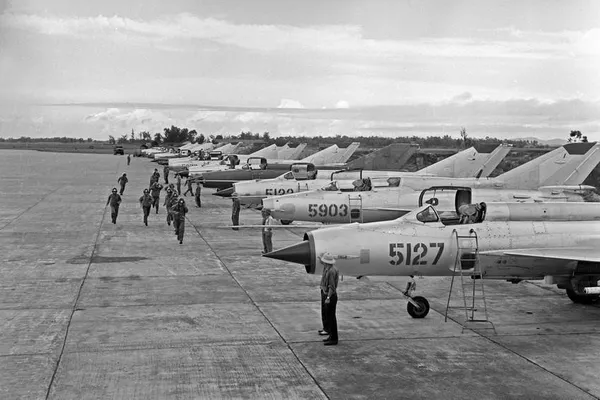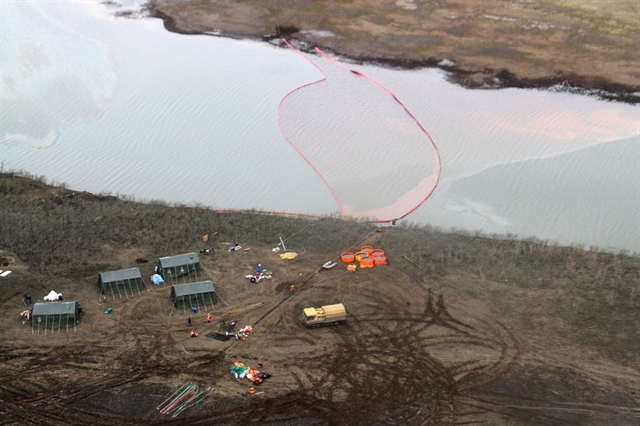 World
World


|
| Clean-up operations underway at combined heat and power plant after a fire caused by a car crashing into one of its fuel storage facilities in Siberia. — TASS PHOTO |
MOSCOW — Russian President Vladimir Putin on Wednesday ordered a state of emergency and criticised a subsidiary of metals giant Norilsk Nickel after a massive diesel spill into a Siberian river.
The spill of over 20,000 tonnes of diesel fuel took place on Friday. A fuel reservoir collapsed at a power plant near the city of Norilsk, located above the Arctic Circle, and leaked into a nearby river.
During a televised video conference, Putin lambasted the head of the Norilsk Nickel subsidiary that runs the power plant, NTEK, after officials said it failed to report the incident.
"Why did government agencies only find out about this two days after the fact? Are we going to learn about emergency situations from social media? Are you quite healthy there?" Putin asked NTEK chief Sergei Lipin in an unusually stern dressing-down.
Norilsk Nickel said in a statement that NTEK had reported what happened in a "timely and proper" way.
Krasnoyarsk region governor Alexander Uss told Putin he only "learned of the real situation" on Sunday after "alarming information appeared in social media".
Putin said he agreed that a national state of emergency was needed to call in more resources for the cleanup effort.
Russia's Investigative Committee, which deals with major incidents, announced that it launched three criminal probes over environmental violations and detained an employee of the power plant.
It released video footage shot on a mobile phone that appears to show fuel cascading down from the reservoir and under a fence.
World Wildlife Fund expert Alexei Knizhnikov said the environmental group was the one who alerted cleanup specialists after confirming the accident through its sources.
"These are huge volumes," he said. "It was difficult for them to cover it up."
The volume of the spill is vastly larger than a major 2007 spill in the Kerch strait of the Black Sea that involved 5,000 tonnes of oil, the WWF expert said.
The Kerch spill, which at the time was the largest Russia had experienced, required the intervention of the military and hundreds of volunteers.
Troops could help clean-up
Knizhnikov said diesel fuel is lighter than oil, so it is likely to evaporate rather than sink, but it is "more toxic to clean up".
Environment Minister Dmitry Kobylkin said only the emergencies ministry could handle the cleanup, "maybe with the involvement of the military".
He that burning the fuel, which some are suggesting, was too risky.
"It's a very difficult situation. I can't imagine burning so much fuel in an Arctic territory... Such a huge bonfire over such an area will be a big problem."
The Ambarnaya river that bore the brunt of the spill will be difficult to clean up because it is too shallow to use barges and the remote location has no roads, officials told Putin.
Norilsk Nickel said the fuel tank was damaged when supporting pillars that had "held it in place for 30 years without difficulty" began to sink.
Norilsk is constructed on permafrost and its infrastructure is threatened by melting ice caused by climate change.
The company has been guilty of spillage in the past. In 2016, it admitted pollutants from a "filtration dam" at its plant washed into another local river, colouring it bright red.
It was fined less than $1,000 for the incident. — AFP